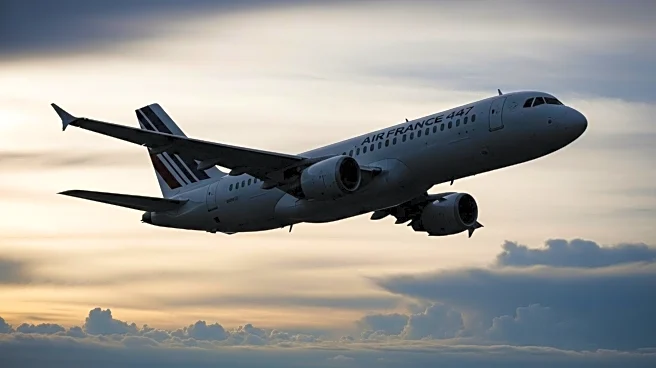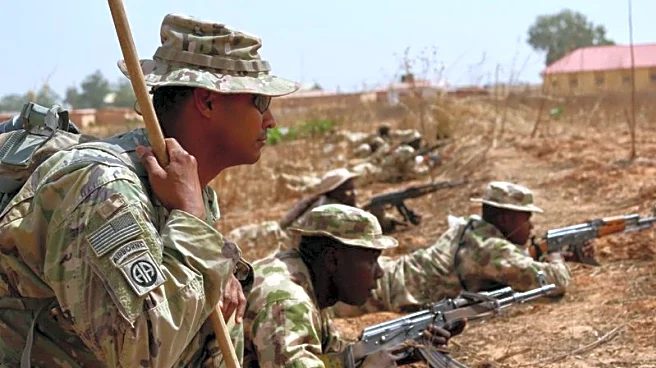What's Happening?
A French appeals court has commenced a new trial concerning the Air France Flight 447 disaster, which occurred 16 years ago when a jetliner crashed into the Atlantic Ocean, resulting in the deaths of all 228 passengers and crew. The trial follows a previous ruling in 2023 that cleared Air France and Airbus of corporate manslaughter charges. The crash, which took place on June 1, 2009, involved the mishandling of data from iced-up speed sensors, leading to an aerodynamic stall. The new trial aims to establish a direct link between identified negligence and the crash, with lawyers for victims' families seeking to demonstrate criminal culpability. Both companies have denied wrongdoing, and the trial is expected to last two months.
Why It's Important?
The reopening of the trial is significant as it addresses unresolved issues surrounding one of the most debated aviation disasters. The outcome could impact corporate accountability in aviation safety and influence future regulations. The trial also serves as a platform for victims' families to seek justice and closure. The disaster led to changes in air safety regulations, pilot training, and the use of airspeed sensors, highlighting the importance of addressing technical failures and training deficiencies. The case underscores the need for transparency and accountability in aviation operations, potentially affecting industry practices and public trust.
What's Next?
The trial will involve statements from the chief executives of Airbus and Air France, with prosecutors aiming to demonstrate negligence in handling speed sensor issues and pilot training. The proceedings may lead to further scrutiny of aviation safety standards and corporate practices. The maximum fine for corporate manslaughter is relatively low, but the trial's outcome could have broader implications for aviation liability and safety protocols. Stakeholders, including aviation regulators and industry leaders, will be closely monitoring the trial's developments and potential impacts on future safety measures.
Beyond the Headlines
The trial highlights ethical considerations in corporate responsibility and the balance between technical failures and human error in aviation disasters. It raises questions about the adequacy of existing safety regulations and the role of corporate governance in preventing accidents. The case may influence long-term shifts in aviation safety culture, emphasizing the importance of proactive measures and accountability. The emotional toll on victims' families and the quest for justice reflect broader societal concerns about corporate transparency and the pursuit of truth in tragic events.









